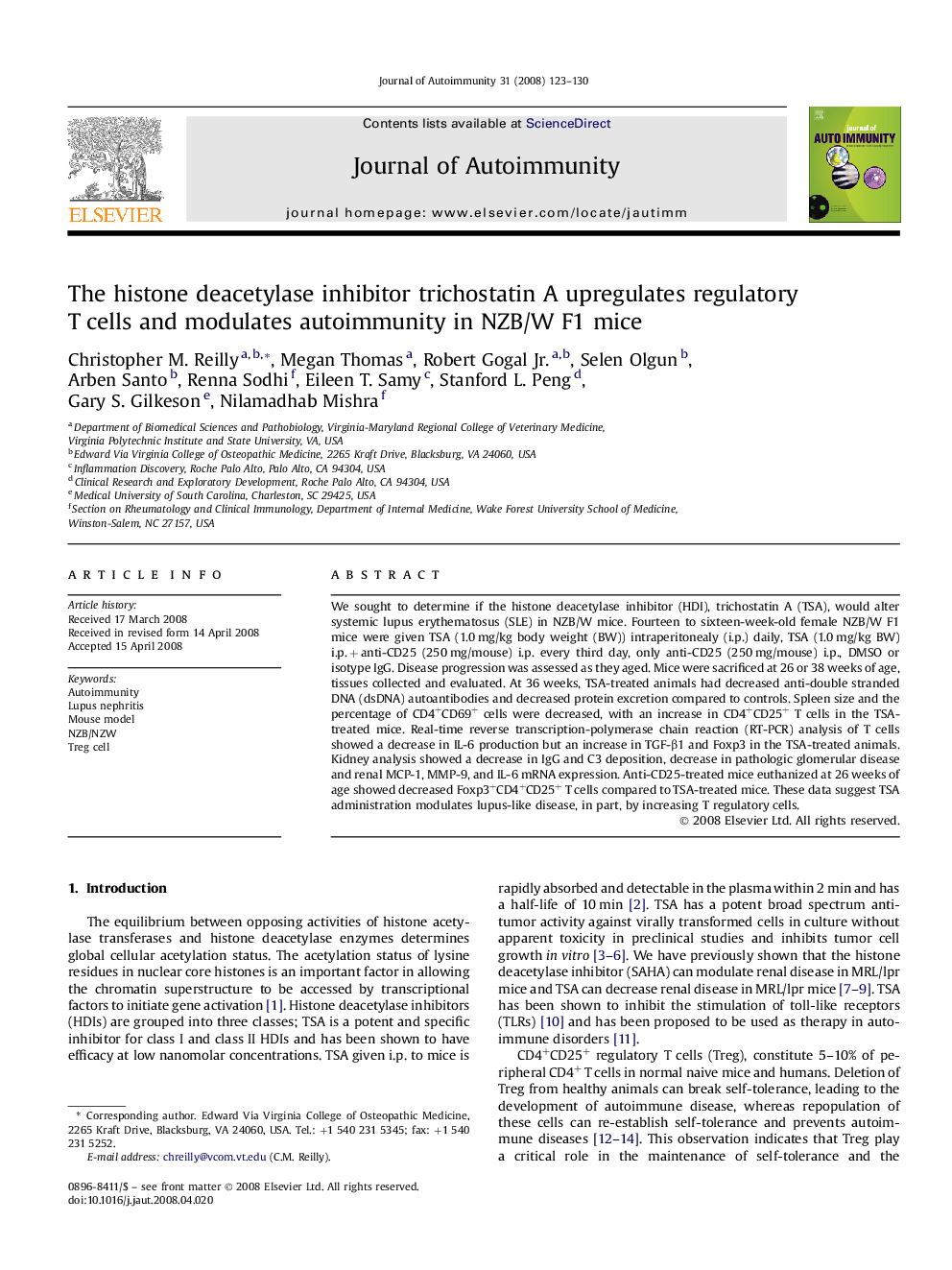| کد مقاله | کد نشریه | سال انتشار | مقاله انگلیسی | نسخه تمام متن |
|---|---|---|---|---|
| 3368269 | 1218780 | 2008 | 8 صفحه PDF | دانلود رایگان |

We sought to determine if the histone deacetylase inhibitor (HDI), trichostatin A (TSA), would alter systemic lupus erythematosus (SLE) in NZB/W mice. Fourteen to sixteen-week-old female NZB/W F1 mice were given TSA (1.0 mg/kg body weight (BW)) intraperitonealy (i.p.) daily, TSA (1.0 mg/kg BW) i.p. + anti-CD25 (250 mg/mouse) i.p. every third day, only anti-CD25 (250 mg/mouse) i.p., DMSO or isotype IgG. Disease progression was assessed as they aged. Mice were sacrificed at 26 or 38 weeks of age, tissues collected and evaluated. At 36 weeks, TSA-treated animals had decreased anti-double stranded DNA (dsDNA) autoantibodies and decreased protein excretion compared to controls. Spleen size and the percentage of CD4+CD69+ cells were decreased, with an increase in CD4+CD25+ T cells in the TSA-treated mice. Real-time reverse transcription-polymerase chain reaction (RT-PCR) analysis of T cells showed a decrease in IL-6 production but an increase in TGF-β1 and Foxp3 in the TSA-treated animals. Kidney analysis showed a decrease in IgG and C3 deposition, decrease in pathologic glomerular disease and renal MCP-1, MMP-9, and IL-6 mRNA expression. Anti-CD25-treated mice euthanized at 26 weeks of age showed decreased Foxp3+CD4+CD25+ T cells compared to TSA-treated mice. These data suggest TSA administration modulates lupus-like disease, in part, by increasing T regulatory cells.
Journal: Journal of Autoimmunity - Volume 31, Issue 2, September 2008, Pages 123–130